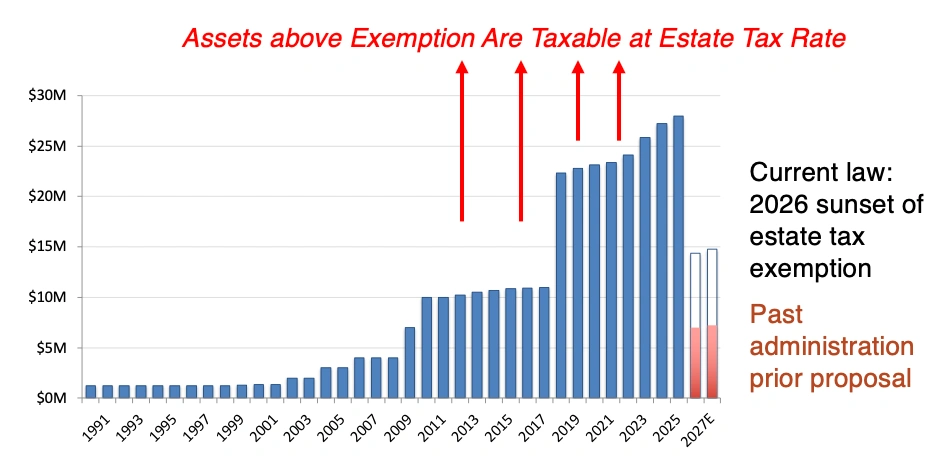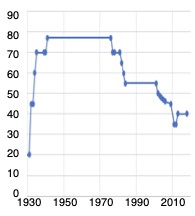Having a taxable estate means that, upon your death, the government will tax your estate because it has assets that are above certain thresholds the government sets.
At the federal level, this typically applies only to families with significant assets ($27.98 million per married couple in 2025 or $13.99 million per single individual in 2025). Current law will cut the federal exemption in half on January 1, 2026. For families who have or expect to have a future net worth of ~$7m per single adult or ~$14m per couple, 2025 is an important year to consider whether you wish to take advantage of the current elevated exemption, before it is set to expire.
At the state level, most states do not have any estate tax or inheritance tax, but some do. It's important to check your state so you know the rules that apply to you.
Once you know the rules that apply to you at the federal and state level, you can calculate your net worth, and you’ll start to see if you are likely to have a taxable estate.
Remember to consider the impact of your life insurance—if you die, the death benefit can become part of your estate, too. If you suspect you will have a taxable estate, it is a great idea to work with an estate planning attorney.
Taxable estates under U.S. federal tax rules
The threshold for taxation that the U.S. federal government sets is called the “basic exclusion amount.” You can find it on the IRS website, and it is updated every year for inflation. In 2025, the basic exclusion amount is $13.99 million per person, and a married couple can combine their individual exemptions, so it’s effectively $27.98 million per married couple in 2025.
The current estate tax exemptions are at historically high levels and are scheduled to decline on January 1, 2026.
Basic Exclusion Amount for Federal Estate Taxes - Per Couple
Many people do not have a taxable estate under federal rules today, but that could easily change as the rules change, so it is good to keep an eye on what is happening with the basic exclusion amount.
What is the U.S. federal estate tax?
When you have a taxable estate at the federal level, you pay estate tax on the amount of the estate that is above the basic exclusion amount. Currently, the estate tax rate is at 40%, a low level compared to historical levels.
Federal Estate Tax % Rate in the U.S.
Taxable estates under state tax rules
While the majority of states have no estate tax and no inheritance tax whatsoever, 17 states plus Washington, D.C., do.
The thresholds in some states are quite low, particularly if you include life insurance. In Oregon and Massachusetts the exemptions are only $1 million dollars. Many people who may not consider themselves wealthy can end up with a taxable estate.
Here is a helpful map to see what rules apply to you if there’s a state estate tax or inheritance tax where you live.
|
Estate Tax (12) |
Inheritance Tax (5) |
Both (1) |
|
|
|
Source: https://taxfoundation.org/state-estate-tax-state-inheritance-tax-2020/
What should I do if I have a taxable estate?
When you have (or expect you will likely have) a taxable estate, it is best to consider your options with qualified advisors. Here at AboveBoard we can help you explore insurance strategies, and we highly recommend doing so in conjunction with an estate planning attorney and (if you have one) your financial advisor.
If you do not yet have an estate planning attorney you love working with, we are happy to offer ideas of candidates you can interview. We also make referrals to financial advisors who embody the smart and ethical approach to their work that we apply to ours.
Get a life insurance quote to start exploring your options.







